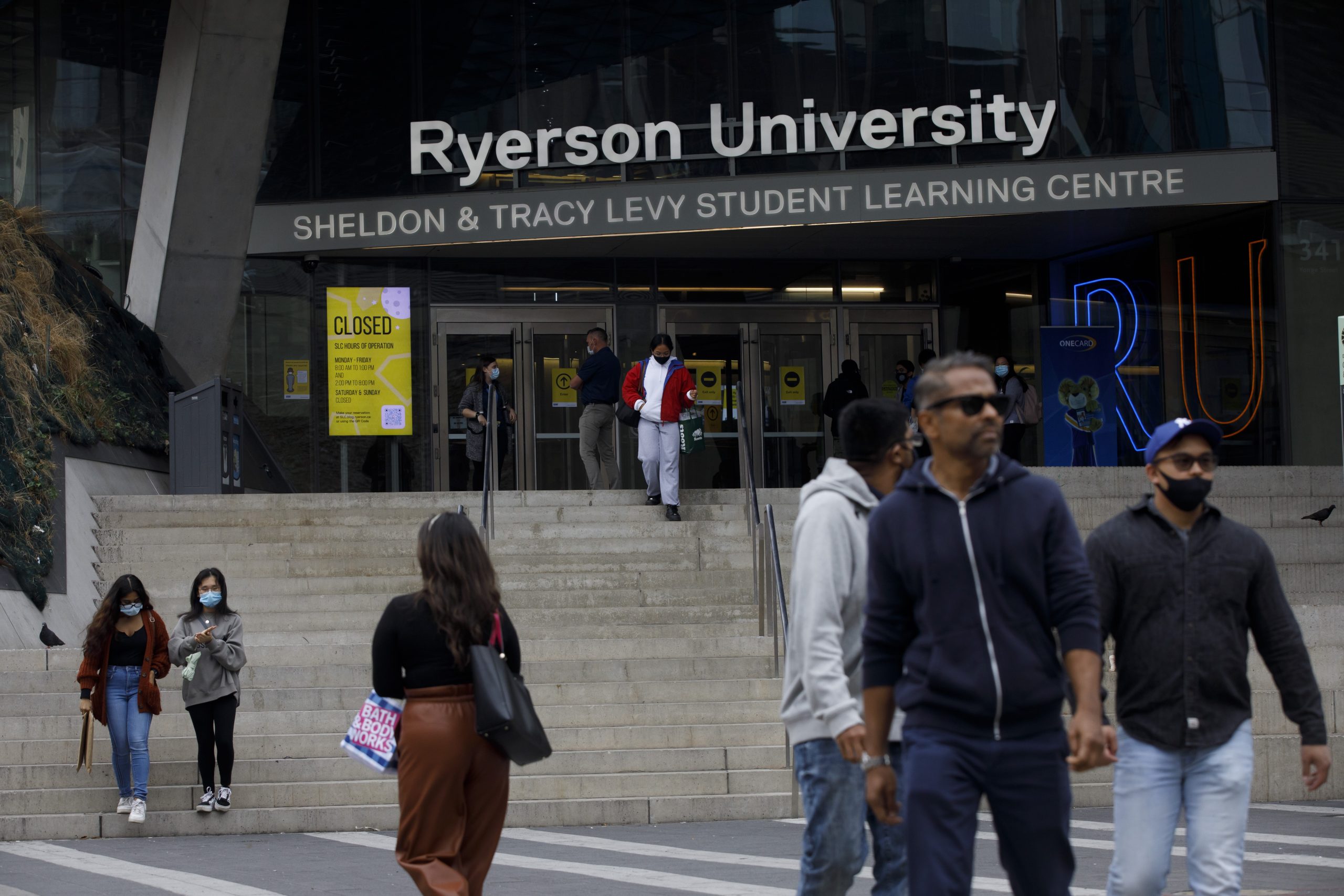TORONTO — As several school boards in Ontario decide to scrap exams during the pandemic, universities are reassuring students that the move won’t affect their post-secondary plans.
School boards in Toronto, Peel Region and Durham Region are among those that have announced the cancellation of exams, saying the move is aimed at reducing student stress and is not expected to have a negative impact on the quality of education students receive.
At the University of Toronto, provost adviser, Dwayne Benjamin, said the university will be “as flexible as possible” when it comes to processing admissions.
“We will work with whatever grades we are provided,” he said.
Benjamin said the university recognizes that not all Ontario high school applicants will be able to provide final grades on typical timelines, and the university will make conditional offers of admission throughout the year on the basis of available Grade 11 and 12 marks.
Ryerson University in Toronto said it will accept final grades that are based on whatever method of evaluation high school teachers deem fit, whether they include final exams or not.
“Universities and colleges – not just high schools – have needed to modify their learning assessment methods to place less emphasis, or even eliminate, final exams during this time of COVID-19 disruption,” Ryerson’s office of the registrar said in a statement.
The University of Waterloo also said it will consider available results submitted, regardless of adjustments to grading practices during the pandemic.
Earlier this month, the ministry of education told school boards they have the option to remove designated exam days from their school year calendar and use them for in-class instructional time.
Education minister Stephen Lecce said the use of essays or report-based assessments in the place of final exams should be allowed “given the circumstance.”
“I just don’t want to increase the anxiety of our students,” Lecce said during a news conference last week. “An essay, an extended report, these are all ways in which an educator can credibly assess the performance of a student.”
One Toronto student said they were worried that not having to write exams during the pandemic might lead to issues in the future.
“How is this going to condition me to think and to act towards my studies after the pandemic?” said Ezio Findabair.
But Findabair said the move is nonetheless beneficial since it eases the pressure on students.
Toronto District School Board spokesman Ryan Bird said the removal of exams should not have any impact on students’ graduating marks “as they will continue to be assessed on their work and understanding during their year.”
The school board said final grades will be based on coursework and in-class assessment because of “the exceptional circumstances” created by the pandemic and the complexities of running exams for both in-person and online learners.
Similarly, the Peel District School Board said it did not include exams in its calendar as it felt increased instructional time was best for students. The board’s associate director of instructional and equity support services, Poleen Grewal, said teachers can evaluate overall marks through tasks during instructional time.
The Durham District School Board said it had previously spoken to the education ministry about removing exams because of research that shows students in Canada experience high levels of stress because of such tasks.
“Given that we are still in a pandemic, and understanding that mental health and well-being are the priority as we assist students with stable structures and routines, we felt that it was in the students’ best interest to have their grades be determined by all work,” it said in a statement.
Brock University educational studies professor Louis Volante said it would be beneficial for all school boards in Ontario to choose not to hold exams during the pandemic.
“(Students) are dealing with a lot of stress to begin with. Having them write exams, under these circumstances, is not helping the situation – it would hurt them,” said Volante, who is the president of the Canadian Educational Researchers’ Association.
This report by The Canadian Press was first published Oct. 19, 2020.
This story was produced with the financial assistance of the Facebook and Canadian Press News Fellowship.
Denise Paglinawan, The Canadian Press













